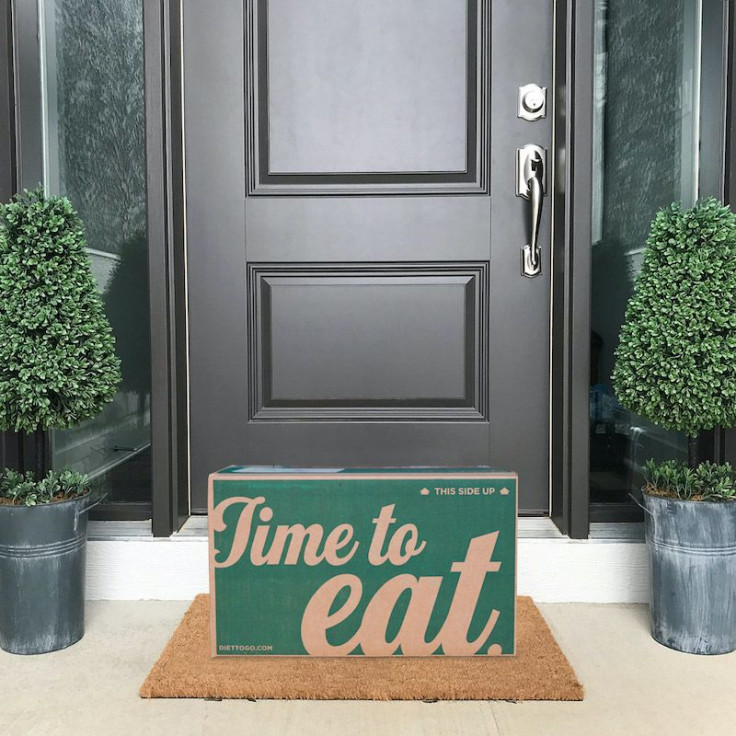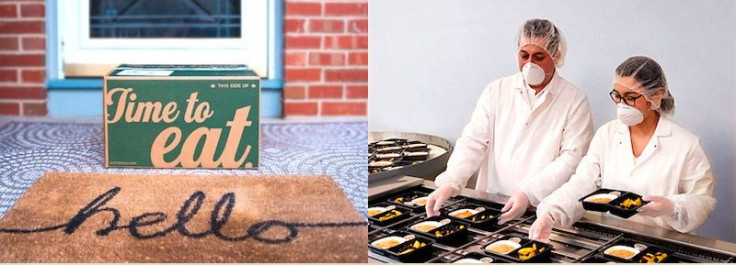Food Delivery Experiences Sharp Increase In Demand

COVID-19 Impacts Food Delivery Services
Amid the clamor of new COVID-19 cases and delivery service bottlenecks, companies are stepping up their ability to reliably deliver safe and healthy food to the hardest-hit communities in the United States.
Freshology and Diet-to-Go in Burbank, Calif. and Lorton, Va. are two examples of meal delivery companies that have seen a spike in consumer demand for their healthy, contact-free meals.
Food delivery quickly spiked in areas impacted by the COVID-19 pandemic. In China, for example, the demand for online food services surged during the coronavirus lockdown period. China’s popular food delivery service, Meituan, reportedly quadrupled customer orders and had 80% of customers requesting contact-free delivery.
In the U.S., the coronavirus pandemic is also forcing food venues to go dark or pivot to a delivery-only model. Thousands of restaurant doors are shuttered due to a lack of customers or by government declarations.
Unlike restaurants, the highly specialized and controlled production facilities at complete-meal food delivery kitchens like Freshology and Diet-to-Go are designed to provide safe, sealed, contact-free delivery. They have remained open and are classified as “essential businesses.”
Other food delivery businesses, like Instacart, rose to the top of related Google search interest categories for food delivery. But in high-density areas, like New York and New Jersey, these on-demand delivery services are showing signs of stress. Finding delivery availability windows prove impossible, with availability extended weeks into the future, and time slots filling just minutes after they open. These problems will likely be compounded over the coming weeks as delivery workers test positive for COVID-19. On March 30, Instacart’s grocery delivery workers nationwide walked off their jobs, and it’s not clear how delivery service companies will fare in the face of a rapid acceleration of cases throughout the month of April.
Food safety interest peaking
Concerns over catching and spreading the disease have resulted in a piqued interest in food safety. That’s especially true among the most vulnerable members of the population. Family Physician Dr. Karen O’Keefe in Washington state sees higher-risk patients who are immunocompromised and over the age of 60, and she urges her patients to stay home.
“I have never in my career been so worried about my patients’ health, especially the elderly and higher-risk ones, as I am right now with the coronavirus outbreak,” O’Keefe said. “My biggest concern is how to keep my higher-risk patients at home and away from public places such as grocery stores. Ordering safe and healthy food that can be delivered to their home is in my top recommendations for my patients right now.”
Dr. O’Keefe added that anyone of any age that has any type of underlying lung or heart diseases such as moderate or severe asthma, COPD, emphysema, congestive heart failure, history of a heart attack or a current or past history of smoking should also take note.
“For this population, home-delivered meals from Freshology are well-balanced, which means they include vegetables, fruits, healthy proteins, and whole grains — with good fats such as olive oil and nuts, nut butter and legumes that would help support their immune systems and help prevent them from getting exposed to others,” O’Keefe said.
The need for a consistent eating structure
Fully-prepared meal delivery is an alternative to the daunting task of post-shopping procedures for vulnerable populations and those who choose to avoid in-person grocery shopping.
Experts believe the battle will be won by supporting our immune system with a healthy diet and good sleeping habits. Registered Dietitian Rebecca Mohning implores people to create a consistent structure for eating.
“When you plan and schedule your meals and portions, it can help avoid unnecessary calorie intake,” Mohning said. “During these times, a healthy balanced diet is more important than ever. Food can be used to strengthen immunity and protect against disease.”
Mohning added that not everyone is well-equipped in the kitchen, nor do they understand what a healthy diet is for them.
“Services like Diet-to-Go can provide them with a healthy solution and cut down on one more added stress right now,” Mohning said. “Also, we should be practicing social distancing from our pantry and refrigerator unless we want to gain the COVID-19 pounds. Instead, Diet-to-Go can provide a real solution to prevent weight gain or a plan to lose weight if that is the goal right now.”
Poised to meet consumer needs
Companies like Freshology and Diet-to-Go have spent 30 years preparing for the dual goal of safe and healthy meal delivery.
“Diet-to-Go delivery personnel wear gloves, and last-mile delivery to homes and offices is executed contact-free,” said Diet-to-Go CEO Hilton Davis.
“Meals are delivered directly to a customer’s front door,” Davis added “Meals are sealed and chilled, so you need not be present to accept the shipments. No at-the-door interaction is the last of many layers of protection for customers.”
Equally important is the warehouse and production facility safety and sanitization protocols, which have always been in place to maintain the highest food safety standards.
“Before meal preparation begins, all food contact surfaces, equipment, walls, floors, doors and sinks undergo a complete wash-down with cleansing and industrial-grade, multi-purpose sanitizers,” Davis said. “This is followed by a supervisor inspection according to a set checklist of control points. In this way, any item that comes into contact with food through the production process is clean and sanitized.”
Employees in a Diet-to-Go production facility wear clean lab coats, with protection from head to hands, including hairnets, aprons, sleeve protectors and gloves when working in the processing room. Before starting any food handling task, employees wash their hands prior to putting on gloves and continue to wash their hands and use new gloves throughout the day before each task and after they leave their work area. In short, the facility was prepared for COVID-19 before it even arrived.
The demand for healthy meal deliveries will continue to experience a dramatic upsurge as some grocery stores face shortages, delayed delivery and social distancing issues. In this time of crisis, focusing on healthy food options to support the immune system can have immediate benefits. Choosing food delivery services that offer contact-free delivery is one way to beat the odds.
For more information about how to stay safe during the COVID-19 pandemic, visit the CDC’s official resource page.

NOTE: This article is a contribution and do not necessarily represent the views of IBTimes.











